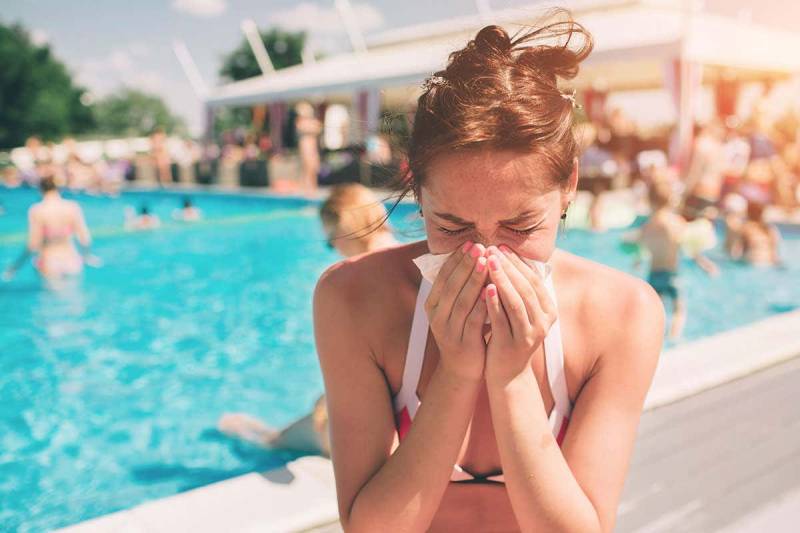Summers won’t diminish coronavirus: American scientists

Stay tuned with 24 News HD Android App

A panel convened by the National Academies of Sciences has said that the novel coronavirus is unlikely to wane substantially with the arrival of summer, though there are many uncertainties remaining, reported The Washington Post.
These findings are in line with previous studies offering hypotheses regarding how the virus may behave in warmer and more humid conditions and is an attempt to help distil the evidence for and against reduced virus transmissibility during warm weather.
The report, known as a “rapid expert consultation,” is addressed to Kelvin Droegemeier, the head of the White House’s Office of Science and Technology Policy and acting director of the National Science Foundation.
The report, published by about a dozen members of the Academies’ Standing Committee on Emerging Infectious Diseases and 21st Century Health Threats, finds laboratory studies of how the coronavirus varies in its transmissibility based on temperature and humidity are not yet conclusive, but more evidence will be available in the coming weeks.
It also finds shortcomings in the studies published so far that trace the spread of the coronavirus and connect the pattern of spread to temperature and humidity, stating they “should be interpreted with caution.”
For example, one such study published in March by MIT researchers found 90 percent of the coronavirus transmissions so far have occurred within a specific temperature (37 to 63 degrees) and absolute humidity range. For areas outside this zone, the virus is still spreading, but more slowly.
The NAS report stated: “There is some evidence to suggest that SARS-CoV-2 may transmit less efficiently in environments with higher ambient temperature and humidity; however, given the lack of host immunity globally, this reduction in transmission efficiency may not lead to a significant reduction in disease spread” without mitigation measures, such as social distancing.
The report notes that other newly emerged coronaviruses, such as SARS and MERS, “have not demonstrated any evidence of seasonality following their emergence.”
In the report, scientists review the recent research on coronavirus, temperature and humidity, including those that have found the illness transmits at slower rates in warmer areas, but warns these results should be taken with caution. This is because each of these studies may suffer from data quality gaps, limited time frames and the fact the virus has mostly spread in temperate regions during the winter months, which could be a coincidence rather than an explaining factor.
“Issues with data quality include the estimates of reproductive rate, assumptions about infectivity period, and short observational time windows,” the report finds. Such studies have also left out other factors that could explain patterns of the virus’s spread, including geography, health-care systems, per capita income and the availability of disease testing.
The report concludes: “...although the experimental studies show a relationship between higher temperatures and humidity levels, and reduced survival of SARS-CoV-2 in the laboratory, there are many other factors besides environmental temperature, humidity, and survival outside of the host, that influence and determine the transmission rates among humans in the ‘real world’.”
Summer break may prove illusory
The report serves as a warning to the White House not to count on a summer respite and to brace for a second wave of the virus once the first surge in cases is over. President Trump as well as the country’s top infectious diseases researcher, Anthony S. Fauci, director of the National Institute of Allergy and Infectious Diseases, have touted the possibility that the coronavirus pandemic would ease this summer.
“ … I think it very well might. And the reason I say that is that what we’re starting to see now in the Southern Hemisphere, in southern Africa and in the southern hemisphere countries, is that we’re having cases that are appearing as they go into their winter season,” Fauci said March 26, when asked whether the virus could have a seasonal cycle.
“And if, in fact, they have a substantial outbreak, it will be inevitable that we need to be prepared, that we’ll get a cycle around the second time.”
Earlier, before the respiratory virus turned into a pandemic, Trump went much further, claiming without evidence that the virus would disappear in April. Speaking at the White House on Feb. 10, Trump said: “Now, the virus that we’re talking about having to do — you know, a lot of people think that goes away in April with the heat — as the heat comes in. Typically, that will go away in April,” he said.
The NAS report goes against this line of thinking, as does reality on the ground, given that the United States now has about 400,000 cases of covid-19. “Given that countries currently in ‘summer’ climates, such as Australia and Iran, are experiencing rapid virus spread, a decrease in cases with increases in humidity and temperature elsewhere should not be assumed,” the NAS report finds.
It ominously notes that influenza pandemics during the past 250 years started at different times of the year and had second waves about six months after the first, regardless of season.
At the request of the White House and Department of Health and Human Services, the National Academies is also examining social distancing and severe illness in young adults, among other topics.
